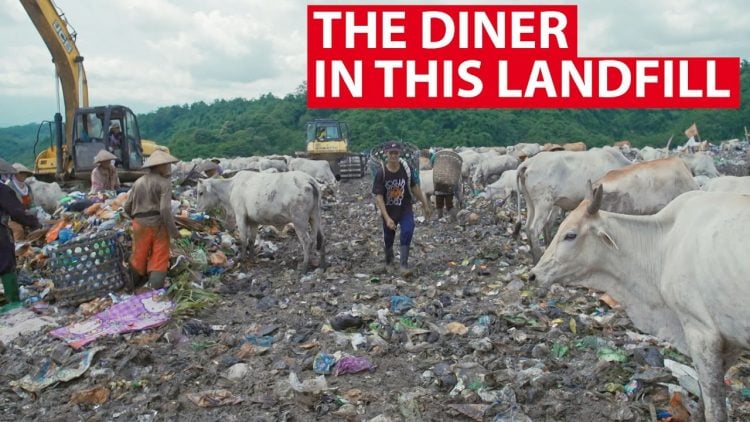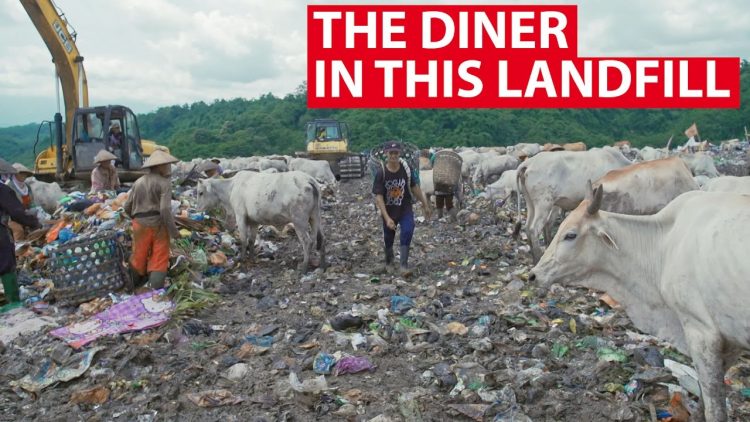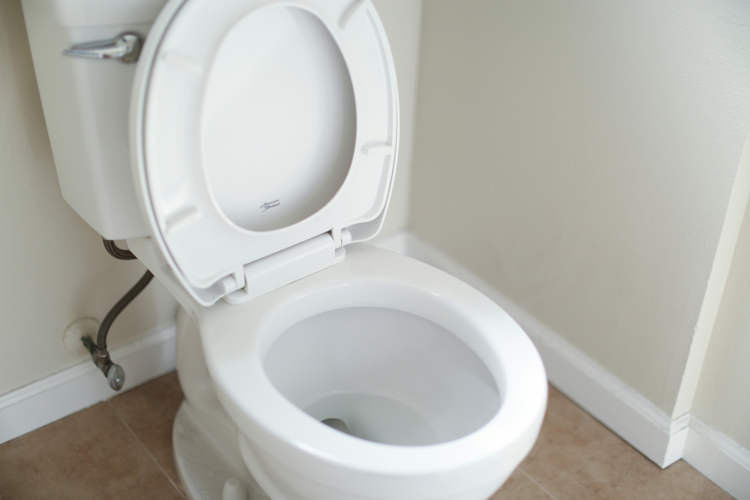An extraordinary new restaurant in Semarang, Indonesia is on a mission to support locals trapped in poverty, many of whome are earning less than $25 (USD) a month, by providing them with an alternative way to pay for their food.
The Methane Gas Canteen, run by husband and wife team Sarimin and Suyatmi, is located in an unexpected place for an eatery – Jatibarang Landfill in Semarang, Central Java. The landfill is a mountain of putrifying waste, where poor locals spend their days scavenging plastic and glass to sell. Meanwhile, the couple, who spent 40 years collecting waste before opening the restaurant, is busy cooking.
What makes the restaurant unusual, aside from its location, is that no cash is required to pay for meals. Poor scavengers have the option to pay for their food with recyclable waste instead of hard currency. Saramin, 56, weighs the plastic customers bring in, calculates its worth, and then deducts that value from the cost of the meal, refunding any surplus value to the patron. The scheme is part of the community’s solution to reduce waste in the landfill and recycle non-degradable plastics.

Photo: YouTube screengrab
“I think we recycle 1 tonne of plastic waste a day, which is a lot. This way, the plastic waste doesn’t pile up, drift down the river and cause flooding,” said Sarimin in an interview with Channel News Asia, “This doesn’t only benefit the scavengers, it benefits everyone.”
The restaurant seats about 30 people and serves meals that cost between $0.40 and $0.80 (USD) each. Some of the dishes on offer are mangut rice with catfish, vegetable soups, and rice with boiled egg, among other traditional recipes.
Since opening the canteen Sarimin and Suyatmi have seen their daily income more than double to $15 (USD) a day, compared to when they relied solely on scavenging.
Agus Junaedi, the former manager of Jatibarang Landfill, came up with the idea for the restaurant in 2014 when Semarang’s mayor Hendrar Prihadi tasked him with reducing the amount of plastic waste in the landfill. 40% of the 800 tonnes of waste that is added to the site daily is plastic, and non-biodegradable.
The price of plastic was meager at the time, hovering around $0.04 (USD) per kg and, as Junaedi told Channel News Asia, “Naturally, no one wanted to collect plastic waste. So, we thought, why don’t we get the scavengers to pay for their meal with plastic waste.”
Additionally, after a fire in 2014 destroyed nearly 10 acres of land, Junaedi realized that the methane gas in the landfill could be utilized as a valuable commodity. It is now available to use free of charge for residents around Jatibarang, as well as in the aptly named Methane Gas Canteen.
Junaedi went on to say, “We want to change the mindset, to see waste as a useful commodity. Hopefully, people would start recycling them and reduce the amount of waste that goes to the landfill daily.”
“I’m happy to see our customers enjoying their meals,” Sarimin told NHK World. “The poor must also have the right to enjoy healthy eating. I want to give them that chance as much as possible.”













